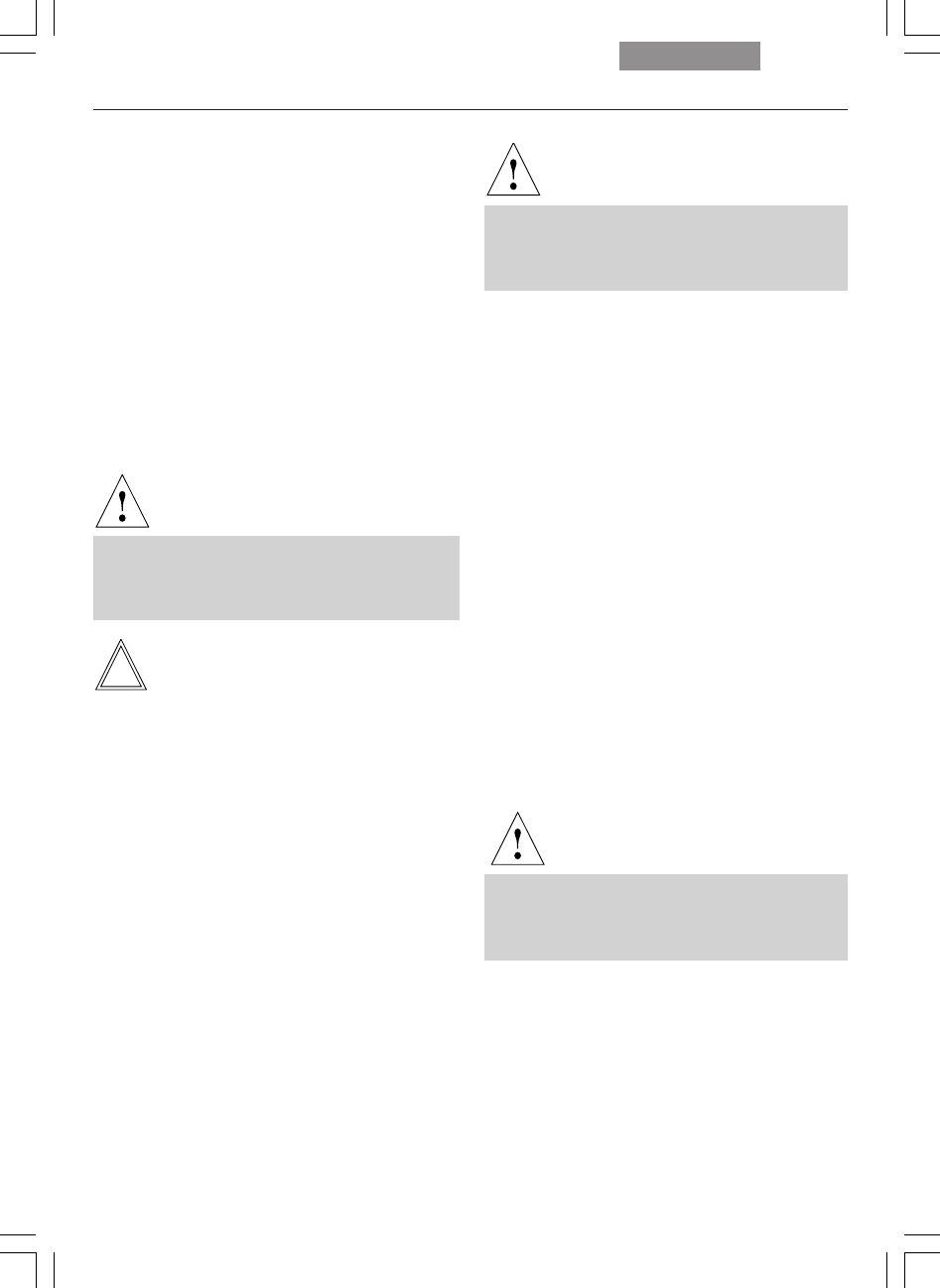
27
5. Unpacking the Microscope
Please carefully compare the contents of the de-
livery to the packing slip, delivery note or in-
voice. We urgently recommend storing a copy of
these documents with the manual to ensure that
you have information on the time and scope of
delivery handy for subsequent orders or service
work. Please ensure that no small parts remain
in the packing material. Parts of our packing ma-
terial are marked by symbols to simplify recy-
cling.
First, carefully remove all components from the
transportation and packaging materials.
Caution!
Do not put the instrument into operation in
the event of visible damage to the compo-
nents or packing material.
Note:
If at all possible, avoid touching the lens sur-
faces of the objectives. If fingerprints do appear
on the glass surfaces, remove them with a soft
leather or linen cloth. Even small traces of finger
perspiration can damage the surfaces in a short
time. See the chapter “Care of the Microscope”
→
p. 107, for additional instructions.
Caution!
Do not connect the microscope or periph-
erals to an AC power source at this time
under any circumstances!
Installation location
Work with the microscope should be performed
in a dust-free room, which is free of oil vapors
and other chemical vapors, as well as extreme
humidity. At the workplace, large temperature
fluctuations, direct sunlight and vibrations
should be avoided. These may adversely affect
measurements and long-term observations.
Allowable ambient conditions
Temperature 15–35°C
Relative humidity maximum 80% up to 30°C
Microscopes in warm and warm-damp climatic
zones require special care in order to prevent
the build up of fungus.
See the chapter “Care of the Microscope”
→
p. 107, for additional instructions.
Caution!
Electrical components must be placed at
least 10 cm from the wall and away from
flammable substances.


















